ClearingCall 01227 768896Apply online

Monday 19 - Sunday 25 June 2023

This Refugee Week focuses on compassion, and at the University of Kent, we seek to enable people from different backgrounds to connect beyond labels. We want to help our whole community to understand why people are displaced and the challenges they face when seeking safety, and develop a curious and compassionate approach to the topic of seeking refuge and asylum.
Got a question or comment about Refugee Week at Kent? We'd love to hear from you! Send us an email at engagement@kent.ac.uk
Share your thoughts and photos with #KentRefugeeWeek when posting on social media.
This short video (1m36s) goes through nine simple ways to develop compassion in action with events and initiatives at Kent this Refugee Week and beyond.

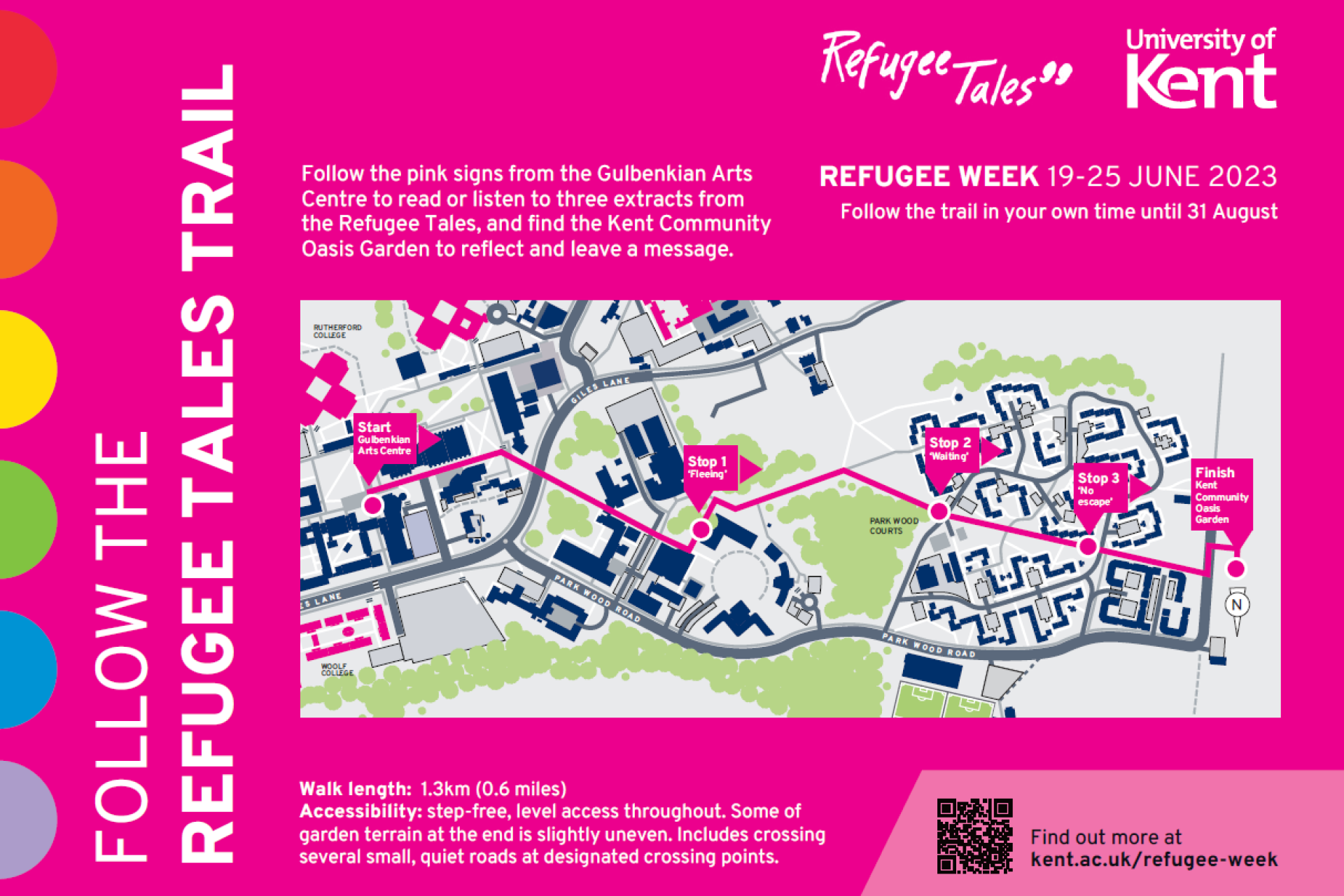
Follow the trail across campus and listen to or read stories of refugees and asylum seekers along the way, finishing at the Community Oasis Garden.
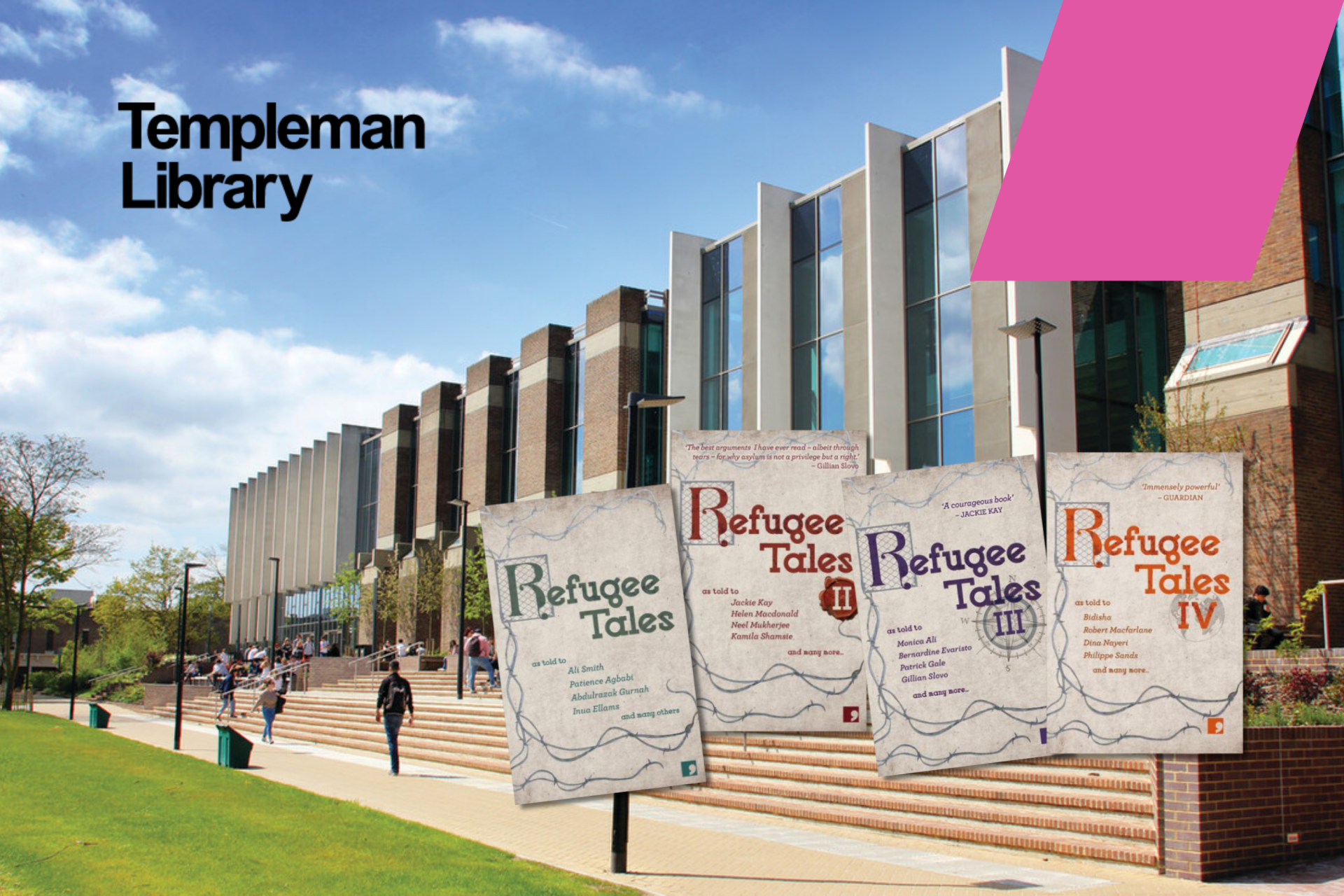
Staff and students can borrow the Refugee Tales anthologies from Templeman Library as ebooks or physical copies.

Learn more about the experiences of refugees by exploring some of the resources on Templeman Library's reading list for Refugee Week.

Ben and Danielle Marsh are staff at Kent, and the lockdown-famous family have written a new song for Refugee Week.

The Student Action for Refugees (STAR) society is a student-led group focused on refugee rights and fostering a welcoming environment on campus.

The organisation Refugee Tales, which was co-founded by David Herd, Professor of Poetry at Kent, enables writers to collaborate with asylum seekers, refugees and people in indefinite detention who share their stories. Taking Chaucer's great poem of journeying – The Canterbury Tales – as a model, writers tell a series of tales as they walk in solidarity with detainees.
The University of Kent is proud to partner with the Refugee Tales and host this Refugee Tales Trail on our Canterbury campus, inviting everyone in the community to walk through our campus, listen to experiences of detainees, and reflect together on how we can mobilise to be a force for positive change.


Do you share our commitment to higher education without borders? Your gift can help rebuild lives.

Find out where on our campuses you can donate clothes for refugees and detained migrants.

Act now to ask for change: Contact your MP asking them to support an end to indefinite detention.


Health economics lecturer Dr Nizalova writes on the Ukraine war and Canterbury for Ukraine activity.

Rania is a stateless refuge and photographer and spoke at a Special Collections and Archives event.
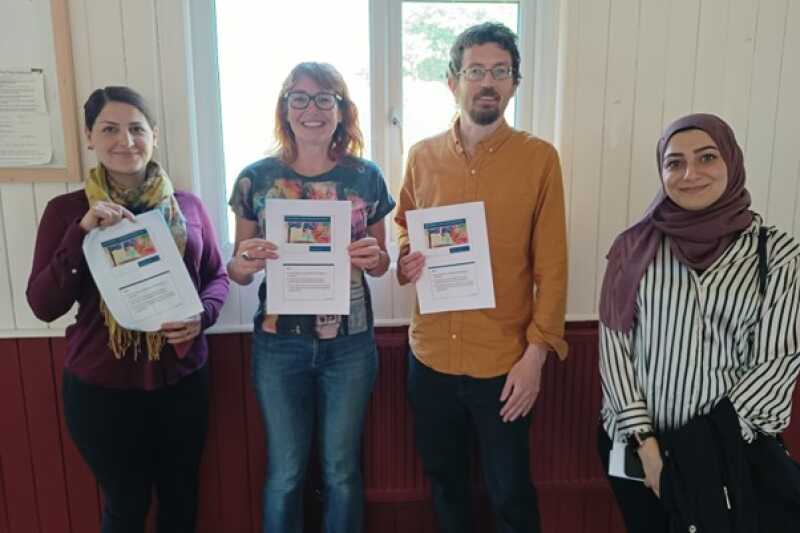
Staff and students delivered legal advice workshops to asylum seekers at Napier Barracks.
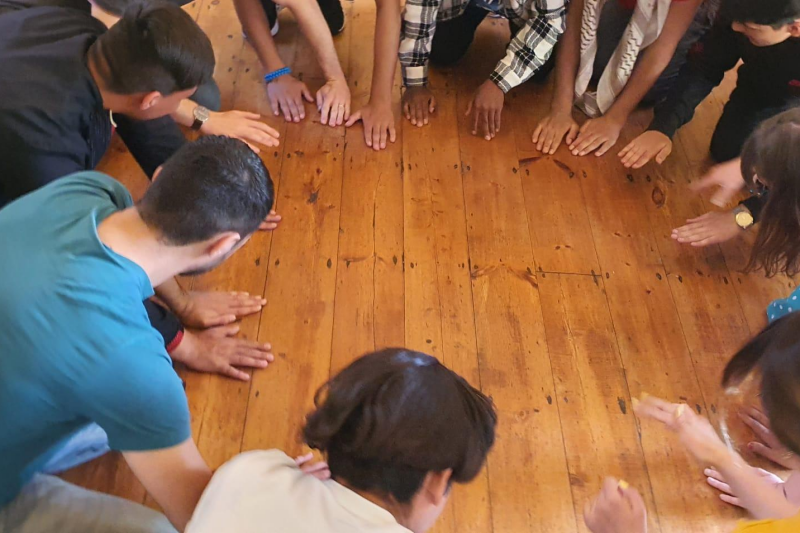
The Gulbenkian Arts Centre helps run workshops to build confidence and communication skills.

Dora, Immigration Compliance Officer at Kent, shares her experience of working with Migrateful.

Sheona York of Kent Law Clinic the Home Office asylum and protection transformation programme

Sian’s main focus is teaching international human rights related courses.

Our work to be a safe and welcoming place for refugees, asylum seekers and others who are displaced.

This Signature Research Theme aims to expand understanding of migration.
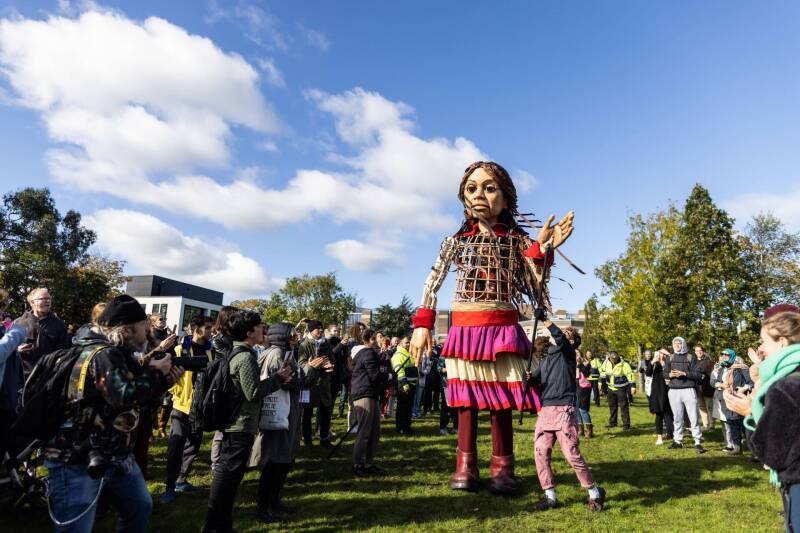
The puppet travelled 8000km in a festival of hope, including a visit to our Canterbury campus.
Please note that the University of Kent is not responsible for the content of these external sites.
GDWG supports people affected by immigration detention.
KRAN works with young people aged 16 to 24 who have arrived in Kent alone and are claiming asylum.
Refugee Tales shares the tales of people held in immigration detention and those who work with them.
Cara provides help to academics who are in immediate danger, forced into exile, or choose to work on in their home countries despite serious risks.
C4U is a charitable association of local volunteers and businesses which exists to provide support to Ukrainians affected by the Russian invasion.